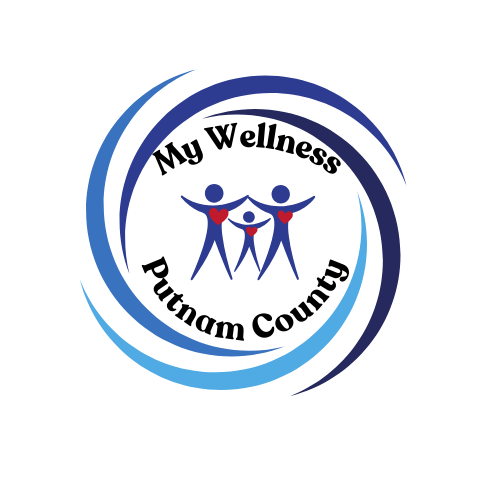December 11 – Daily COVID-19 update from Putnam County
1791 cases
(Greencastle, Ind.) Putnam County officials announced today that there have been 1791 confirmed cases of COVID-19 in the county since March. Putnam County is currently at a 10.6% positivity rate. For a further breakdown of cases please visit www.coronavirus.in.gov . The positive case number also may include positive cases at the state correctional facility located in Putnam County. To learn more, visit https://www.in.gov/idoc/3780.htm .
Putnam County remains in level orange according to the ISDH website. What does being an orange county mean? The county has a point score of 2.0 to 2.5 when percent positivity and new cases per 100,000 residents are combined. Community spread is approaching high levels. These requirements are in effect when a county reaches the orange metric and remain until a county moves to yellow or blue for two straight weeks.
The following guidelines are recommended by ISDH when a county is orange.
- Hoosier businesses remain open
- Local public health officials, health care providers, elected officials, school leadership and other key local leaders must convene regularly to discuss actions that could be implemented to decrease the spread of COVID in their communities
- Evaluate the source of positive tests, undertake targeted testing, quarantine and isolation
- Social gatherings of any kind, indoors or outside, are limited to 50 people
Special, seasonal or commercial events for which more than 50 people are requested to attend must submit a plan to the local health department at least seven days in advance of the event and receive approval before proceeding. College and professional sports events are included.
- Capacity in common areas and break rooms should be reduced, and users must be socially distanced
- Attendance at winter indoor K-12 extracurricular and co-curricular activities, including IHSAA sports, is limited to 25 percent capacity, in consultation with local health departments; all non-competing and non-performing participants, support personnel and attendees are required to wear face coverings at all times. All non-family groups must be socially distanced.
Putnam County Hospital has received a very limited supply of Eli Lilly’s monoclonal antibody ( bamlanivimab ) from the Indiana State Department of Health.
The distributions to healthcare facilities across the state will vary on an ongoing basis as related to production of the medication. This antibody treatment may only be used in COVID-19-positive patients who have recently developed symptoms and are at a high risk of developing serious COVID-19 disease. High risk factors include age over 65, and chronic medical conditions, such as diabetes, chronic kidney disease, overweight, and also immunosuppressed states, due to illness or medication.
They only way to obtain the antibody treatment is to receive an order from your primary care or other healthcare provider, and administration must be performed in the hospital, as an outpatient. Infusions last 60 minutes, with additional time following the infusion for patient observation. Although the drug is available at no cost, there is a charge for administration and observation. Additional information can be reviewed at the following links.
Putnam County Hospital continues to offer curbside COVID testing. To schedule your appointment please go to https://scheduling.coronavirus.in.gov If the website is showing that there are no open appointments for the day please call our COVID curbside phone number. Testing hours are Tuesday-Friday 10:00am-6:00pm and Saturday 9:00am-2:00pm. If you have any further questions or if the online scheduling is showing full please call (765) 301-7019. Putnam County Hospital asks that patients arrive no earlier than five minutes before their scheduled test to help with the flow of traffic. When a patient arrives they will follow the COVID-19 testing signs. These signs will direct them to the proper testing area. Please note that the curbside testing will be closed on November 26 and 27. However, the testing site will be open on Monday, November 23.
What should you do if you are awaiting test results?
If you have been tested and are awaiting results please remember to follow the necessary precautions to help slow the spread. Here are some helpful tips and reminders from the CDC.
Stay home and away from others:
- Stay away from others while waiting for your COVID-19 test result, especially people who are at higher risk for getting very sick from COVID-19, such as older adults and people with other medical conditions, if possible.
- If you have been around someone with COVID-19, stay home and away from others for 14 days ( self-quarantine ) after your last contact with that person and monitor your health.
- If you have a fever, cough or other symptoms of COVID-19, stay home and away from others (except to get medical care).
- If you need support or assistance while in self-quarantine, your health department or community organizations may be able to provide assistance.
Monitor your health:
- Watch for fever, cough, shortness of breath, or other symptoms of COVID-19. Remember, symptoms may appear 2-14 days after exposure to COVID-19.
Think about the people you have recently been around. While you wait for your COVID-19 test result, think about everyone you have been around recently. This will be important information to have available. If your test is positive, someone from the health department may call you to check on your health, discuss who you have been around, and ask where you spent time while you may have been able to spread COVID-19 to others.
What else can I do right now to help prevent the spread of influenza and the flu?
- Avoid close contact. Avoid close contact with people who are sick. When you are sick, keep your distance from others to protect them from getting sick, too.
- Stay home when you are sick. If possible, stay home from work, school and errands when you are sick. This will help prevent you from spreading your illness to others.
- Cover your mouth and nose. Cover your mouth and nose with a tissue when coughing or sneezing. It may prevent those around you from getting sick. Flu and other serious respiratory illnesses are spread by cough, sneezing or unclean hands.
- Clean your hands.
Washing your hands often will help protect you from germs. If soap and water are not available, use an alcohol-based hand rub.
- Handwashing: Clean Hands Save Lives Tips on hand washing and using alcohol-based hand sanitizers
- It’s a SNAP Toolkit: Handwashing Hand washing resources from the It’s a SNAP program, aimed at preventing school absenteeism by promoting clean hands; from the School Network for Absenteeism Prevention, a collaborative project of the CDC, the U.S. Department of Health and Human Services and the American Cleaning Institute.
- Avoid touching your eyes, nose or mouth. Germs are often spread when people touch something that is contaminated with germs and then touch their eyes, nose or mouth.
- Wear a mask. Masks can reduce the transmission of all respiratory illnesses, including the flu.
- Practice other good health habits. Clean and disinfect frequently touched surfaces at home, work or school, especially when someone is ill. Get plenty of sleep, be physically active, manage your stress, drink plenty of fluids and eat nutritious food.
Putnam County is providing regular updates on COVID-19 to citizens as part of its effort to complement the daily updates from the Indiana State Dept. of Health. The updates can be accessed via www.coronavirus.in.gov .
To learn more about Putnam County’s coordinated response to COVID-19, please visit the Putnam County Hospital at www.pchosp.org/covid-19-updates or the Putnam County Health Department at www.putnamhealthindiana.org .








